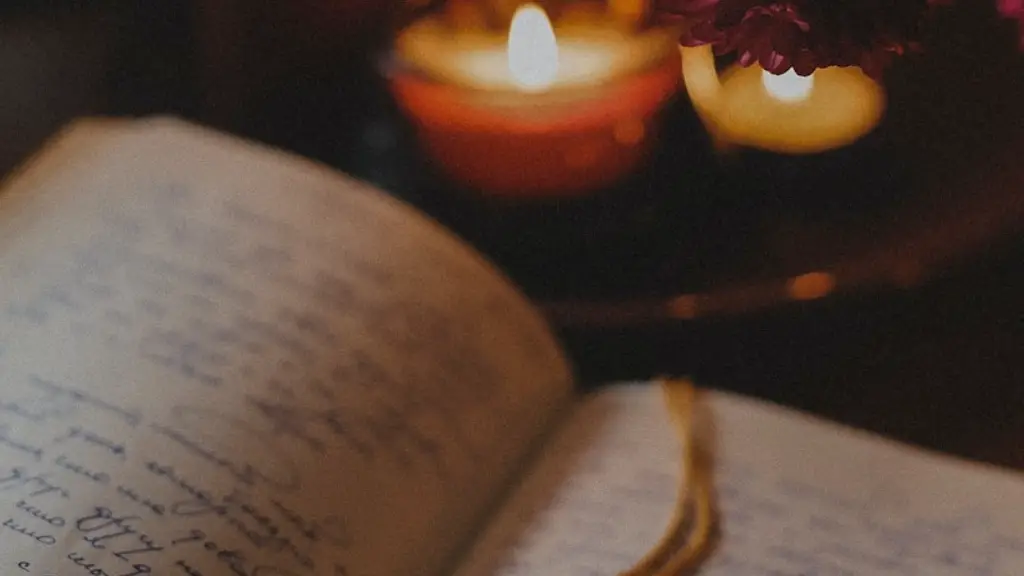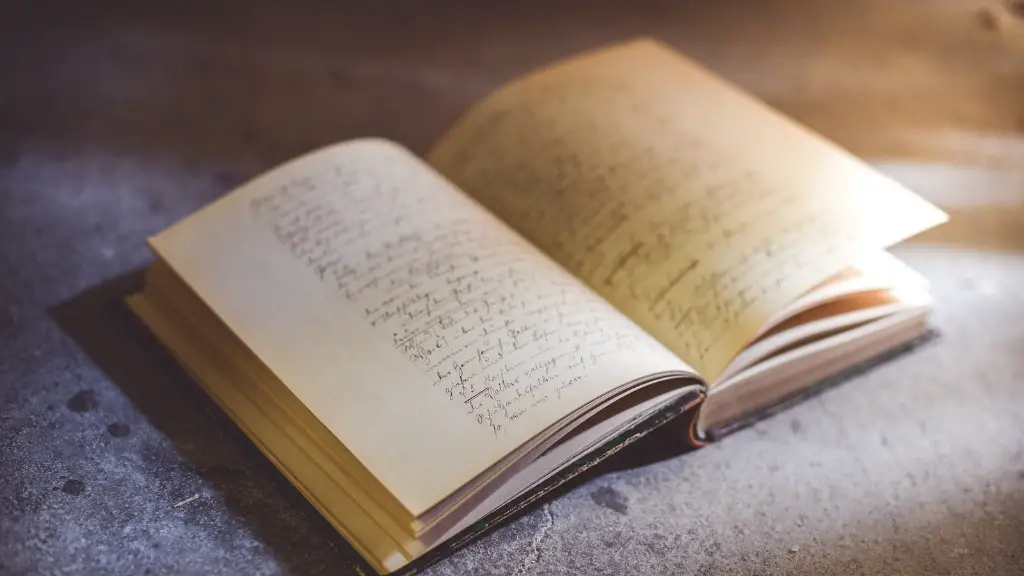Structure
Writing poetry for music is both an art and a science. In order to effectively capture the emotion and message from the music and put it into words, there are certain elements that a poet must consider. This article will explore the main components of writing poetry for music, including structure, word choice, rhyme, and imagery. Writing poetry for music is its own unique genre and these tips will provide insightful guidance for those looking to hone their craft.
Word Choice
Before getting started it is important to choose the right words. To make the poetry an extension of the music, it is important to capture the same emotion, energy, and depth with the words. Think of words as musical notes in a song that must express what you want to convey. When writing poetry for music, the poet should pay attention to connotations and double-meanings; the words should sound pleasing, reflect the genre of the song, and the poet should use words that are meaningful to their experience.
Rhyme
Rhyming is an effective way to connect words, but if done incorrectly it can result in a predetermined, formulaic outcome. To avoid such a result, the poet should use internal rhyme (such as having the same sound appear in the middle part of the line) and multiple rhymes instead of a single rhyme at the end of each line. Furthermore, the poet must consider the context and interpretation of the words; the same words may have different connotations and therefore different flavors. The poet should determine how the words interact with each other in order to form a pleasing outcome.
Imagery
The imagery used in writing poetry for music can be pivotal for conveying the message. The audience will use the imagery to draw upon their own life experiences and relate to the song. Therefore, imagery can drive the release of emotion, capturing the feelings the poet wants the listeners to experience. It is also important to note that subtlety can be effective in evoking emotion; by employing a light touch the poet can enable the listener to interpret the imagery and make connections to their own lives.
Performance
Performance plays a crucial role in writing poetry for music. As such, the poet must consider the song’s genre and develop a delivery style that matches. For example, jazz poetry should incorporate performance techniques such as a slowed delivery, unexpected breaks, and musical improvisation. By understanding the genre and developing a delivery style, the poet can effectively communicate their message with the audience.
Editing
It is essential for the poet to edit their work until it is perfect. Editing should be thought of as refining the work, rather than simply making corrections. The poet should ask themselves, does this line reflect the message I am trying to convey? Through editing the poet can identify areas that require restructuring and perfect the flow of the poem.
Diversity
In order to ensure the poet does not become stagnant, diversity is essential. This can come in the form of new perspectives and different genres. Exploring new and unknown aspects of music, as well as experimenting with different tools and techniques will help the poet create more meaningful and unique poetry. Additionally, looking to other creatives and challenging oneself to become a better poet will help to build new ideas and approaches.
Resourcefulness
Forming unique and impactful poetry relies on a poet’s resourcefulness. To achieve this, the poet should have an understanding of the language, be well acquainted with different literary devices, and have knowledge of culture and history. Furthermore, resourcefulness also involves developing the willingness to use unconventional methods in the writing process. This can range from creating stories out of metaphors and analogies, to exploring different musical aspects to incorporate into the work.
Balance
Balance is also essential for writing effective poetry for music. As the poet puts together their pieces, they must ensure that the words, rhymes, and imagery are in balance with the sound of the music. This harmonious balance allows for the words to become one with the song and invokes a powerful effect on the listener. It’s important to practice restraint and trust the music to guide the flow of the words.
Collaboration
Collaboration can also be a useful tool when writing poetry for music. Working with a producer or another poet can bring a unique energy to the project, and understanding the partner’s vision will enable the poet to tap into new sources of inspiration. Also, having someone else to bounce ideas off of can provide additional perspectives, allowing the poet to create more meaningful and meaningful poetry.
Creativity
Creativity is key to writing successful poetry for music. The poet should have a clear understanding of the message and emotion they are trying to convey and strive to reach beyond conventional thought. Writing for music is an art that requires tapping into one’s inner vision, which may require diving into the unknown and experimenting with new techniques. Developing creative solutions is a key component of successful poetry for music.
Originality
Originality is the cornerstone of writing effective poetry for music. Other poets may draw inspiration from each other, but the goal is to create something authentic and unique. In this way, the poet should bring novelty to their work by crafting intricate stories, rhymes, and imagery, painting pictures that will stand out in the minds of the audience.
Influences
When writing poetry for music, influences are an important starting point. Utilizing another poet’s work as a reference point, the poet can employ elements they like while also being aware and avoiding common trends and patterns. Utilizing established poets as a reference point can help the poet draw insight and inspiration to further their work.
Research
Research is important for writing poetry for music. Before beginning a project, the poet should take the time to research the genre of the song, its instruments and unique sonic characteristics, the cultural context within which the music is found, and be exposed to other versions and interpretations of the same song. By doing this, the poet can gain an understanding of the nuances and complexities of the music they will be writing for.
Motivation
Writing poetry for music requires discipline and motivation. Keeping the focus, a poet should set specific goals and look to different sources to keep themselves motivated. For example, a poet can draw strength and ideas by listening to music and participating in poetry readings and workshops. Additionally, having a personal network of peers and mentors can help to foster an environment in which the poet can grow and continue to write innovative poetry.



